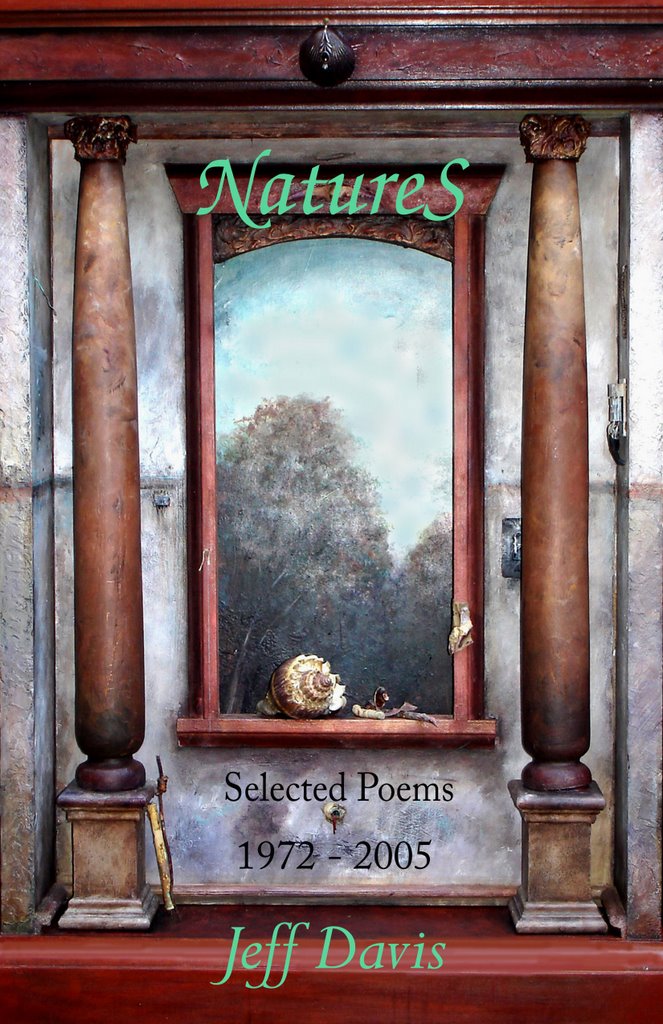Ecopsychology takes hold
Today's NY Times reminds me why, in pre-digital days now long past, I'd often settled in with the Sunday print edition and a pot of coffee and read all day. And there's one article today that really caught my eye: Daniel B. Smith's "Is There An Ecological Unconscious", which delves into the work of several psychologists who are exploring, and treating pathologies in, the connection between mind and the world we know as Nature.
Smith, as any serious student of the link must, takes his review of ecopsychology all the way back to the work of Gregory Bateson, whose fundamental insights helped open the connection to study. Bateson held that, as Smith puts it, "Humankind suffered from an 'epistemological fallacy': we believed, wrongly, that mind and nature operated independently of each other. In fact, nature was a recursive, mindlike system; its unit of exchange wasn’t energy, as most ecologists argued, but information. The way we thought about the world could change that world, and the world could in turn change us."
"Critics would likely point out," Smith notes, "that ecopsychologists smuggle a worldview into what should be the value-neutral realm of therapy. Supporters would likely reply that, like Bateson, ecopsychologists are not sneaking in values but correcting a fundamental error in how we conceive of the mind: to understand what it is to be whole, we must first explain what is broken."
Go get a cup of coffee, dear reader, a cup of tea, or whatever you might prefer to drink on such an occasion, and settle in for a good read.
~~~~~~~~~~~
When you've finished Smith's article, here's a link to two chapters of Bateson's Mind and Nature, so pour yourself another cup.
Smith, as any serious student of the link must, takes his review of ecopsychology all the way back to the work of Gregory Bateson, whose fundamental insights helped open the connection to study. Bateson held that, as Smith puts it, "Humankind suffered from an 'epistemological fallacy': we believed, wrongly, that mind and nature operated independently of each other. In fact, nature was a recursive, mindlike system; its unit of exchange wasn’t energy, as most ecologists argued, but information. The way we thought about the world could change that world, and the world could in turn change us."
“When you narrow down your epistemology and act on the premise ‘what interests me is me or my organization or my species,’ you chop off consideration of other loops of the loop structure,” Bateson wrote. “You decide that you want to get rid of the byproducts of human life and that Lake Erie will be a good place to put them. You forget that the ecomental system called Lake Erie is a part of your wider ecomental system — and that if Lake Erie is driven insane, its insanity is incorporated in the larger system of your thought and experience.” Our inability to see this truth, Bateson maintained, was becoming monstrously apparent. Human consciousness evolved to privilege “purposiveness” — to get us what we want, whether what we want is a steak dinner or sex. Expand that tendency on a mass scale, and it is inevitable that you’re going to see some disturbing effects: red tides, vanishing forests, smog, global warming. “There is an ecology of bad ideas, just as there is an ecology of weeds,” Bateson wrote, “and it is characteristic of the system that basic error propagates itself.”As someone who lived, when I first read him, at the northern end of Lake Erie, where the annual fish catch had dropped in a few decades from thousands of tons to a few hundred pounds, and those too poisoned to eat; where summer algal blooms engulfed the lakefront and whole islands; in a city where rivers flowing into Lake Erie would actually catch fire ... well, as you might imagine, I found that Bateson's words had real resonance.
"Critics would likely point out," Smith notes, "that ecopsychologists smuggle a worldview into what should be the value-neutral realm of therapy. Supporters would likely reply that, like Bateson, ecopsychologists are not sneaking in values but correcting a fundamental error in how we conceive of the mind: to understand what it is to be whole, we must first explain what is broken."
Go get a cup of coffee, dear reader, a cup of tea, or whatever you might prefer to drink on such an occasion, and settle in for a good read.
~~~~~~~~~~~
When you've finished Smith's article, here's a link to two chapters of Bateson's Mind and Nature, so pour yourself another cup.
Labels: Ecopsychology, Further Studies, Gregory Bateson

0 Comments:
Post a Comment
<< Home